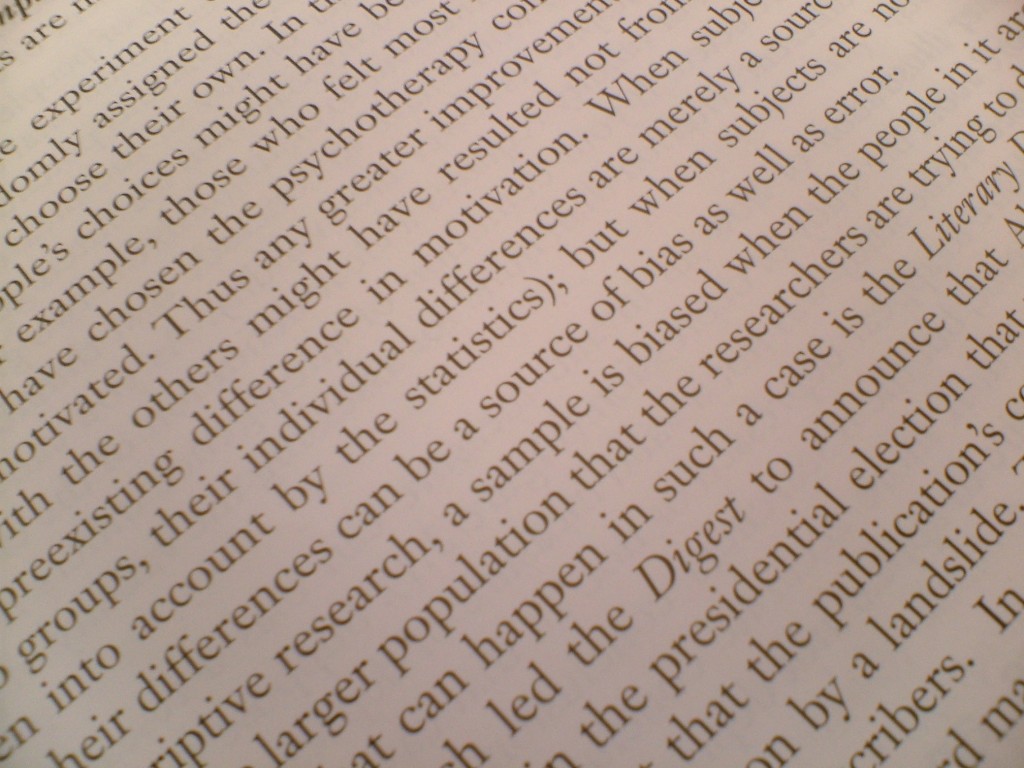
When you ramble on too long about a topic, sometimes, the reader just won’t keep reading.
Photo by RobertG NL (Flickr)
Ever see someone comment under a post with “TL;DR”? These spammy comments pervade the Internet. The only thing more annoying than seeing a “TL;DR” comment in your feed is to see the ridiculous and out-of-fashion “First!” The comment simply conveys that instead of staying to read your meticulously written and well-thought-out piece, the audience member (usually a Reddit lurker hopped up on Monster energy drinks) thought that your article was too long to read, too verbose, too detailed to spend time actually reading it. Perhaps you’ve been pelted with this odd, rude, and unhelpful phrase. Here’s the thing:
TL;DR has absolutely nothing to do with length.
People are simply not cognizant of word count. They’ll stick around for a 2,000-word piece about how Warner Brothers screwed the pooch by misrepresenting Superman but not be bothered with reading a 500-word fact-centric educational work about the history of direct current. Even though electricity has more to do with their daily lives (and using the Internet), readers are way less likely to like, share, comment on, or discuss an article about such a dry topic.
… Unless you talk about your dry topic in a fun way.
You could make wide, sad comments about the nature of youth and the negative culture of expected entertainment, but in order to capture the attention of the “haters,” you need to be a little bit more proactive. When you’re writing something about a less-interesting topic, you need to ask yourself the following questions:

Photo by ladydanio (Flickr)
Am I answering a question that a reader might have? Where and how am I displaying the answer that they want to know?
The thing about brevity and TL;DR comments is that it also has nothing to do with facts and details. Readers are more than willing to slog through dense articles to find important answers to their questions. They want to know. A writer’s role is to be useful in this scenario. Also note that if you explain everything your reader wants to know in your category headings, readers will just skim those rather than reading the text underneath them.
Am I solving a problem the reader doesn’t know that they have yet?
I like to call this the Listerine effect — telling someone that they have a problem that they didn’t know they had in the first place. Your “halitosis” is why you’re often a bridesmaid and never a bride — fix it with Listerine! You have to convince the reader that they have a problem in the first place. “Bugs to help your garden flourish” is not as interesting as “Are you attracting the right kind of bugs to your garden?” The second title creates more urgency. When writing the article, make sure you’re writing it in the proper order: Create the problem, convince the reader they have it, too, then fix it.
When I’m writing this, am I just trying to meet word count?
This is a very simple fact of writing. It relates to site content, blogs, news pieces, and fiction. If you’re bored, your readers are, too. If you find yourself being repetitive and obvious, then you’re unconsciously trying to pad out word count with “fluff.” Fluff can also relate to the language that you use. You could be using simpler sentences that are short and direct, like Hemingway. On the other hand, longer, Victorian-style language with lots of artistic flourish (like Charles Dickens) can be fine, too. What’s not fine is excessive use of the passive voice, many run-on sentences, repeating ideas, and unnecessary adjectives and adverbs. These can make your article sound long, even though it isn’t.
Do I have confidence that someone, somewhere is interested in this?
Sometimes, writers have to write about topics or situations they deem to be bad or uninteresting. This negative, fatalist attitude encourages them to fail before they even get started. Part of the excitement of writing is knowing that you can connect with someone — just maybe not soon, maybe not in the way you originally intended, and maybe not with the people you expected. No matter how strange, how odd, or how uninspired a topic might seem, a writer must have faith that someone will read it.
The Internet is a weird, weird place. Strange people are out there, and they want to learn about the way that elephants use their trunks in the wild or the differences between a foundry and factory. When you’re writing, shouldn’t you behave as though you’re talking directly to those interested, invested people? When a writer has a mindset of knowing that someone will read their work, they have a small level of excitement, and that excitement bleeds into their work, and that work, amazingly, can be read and enjoyed by more people.
The Internet is full of jerks, and sometimes rude comments are unavoidable, but if you have these elements in mind when you’re writing, you can rest easy knowing that you wrote the best piece possible at the time. Fight TL;DR with HF;BC — have faith; be concise!
Have you ever been slammed by a TL;DR comment? Send us a link in the comments below.
